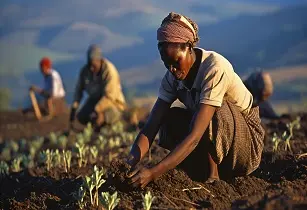The Government of Italy has contributed US$2.1mn to the United Nations World Food Programme (WFP) to help tackle climate change-induced vulnerabilities and strengthen food and nutritional security for up to 10,000 people including smallholder farmers, youth and women from selected farmers organisations in Tete province, in central Mozambique
With agriculture accounting for 80% of Mozambique's GDP, the contribution, which was allocated through the Italian Agency for Development Cooperation (AICS), comes at a critical time as the climate crisis intensifies, with extreme weather events such as cyclones, floods and droughts, occurring more frequently and intensely.
“For us to overcome the adversities of climate change means improving the livelihoods of vulnerable communities dependent on farming. Thus, consolidating climate-smart agricultural practices and improving post-harvest management is essential,” said Antonella D’Aprile, WFP’s country director in Mozambique. “Thanks to this generous contribution from AICS, not only will smallholder farmers facing the full wrath of extreme climatic changes be supported in adapting to climate variability but will also improve their diets through enhanced access to nutritious foods, essential for a child’s healthy growth.”
Paolo Enrico Sertoli, Director at Italian Agency for Development Cooperation, Regional Office in Maputo highlighted that the project aligned with the Italian Corporation's ongoing efforts to enhance Mozambique's agriculture in the face of climate change, particularly El Niño. "The focus on the Beira Corridor is crucial for Mozambique and neighboring countries like Malawi and Zimbabwe. It also builds on Italian Cooperation’s initiatives in the Tete Province, such as the DELPAZ programme, contributing to peace and socio-economic development by improving the capacities of local farmers.”
While Italy is a strategic partner of WFP in Mozambique, the latest contribution however, is the first one for development and resilience-building activities aimed at boosting farmers' capacity and enhancing food security.
For more information, visit: https://www.wfp.org/





